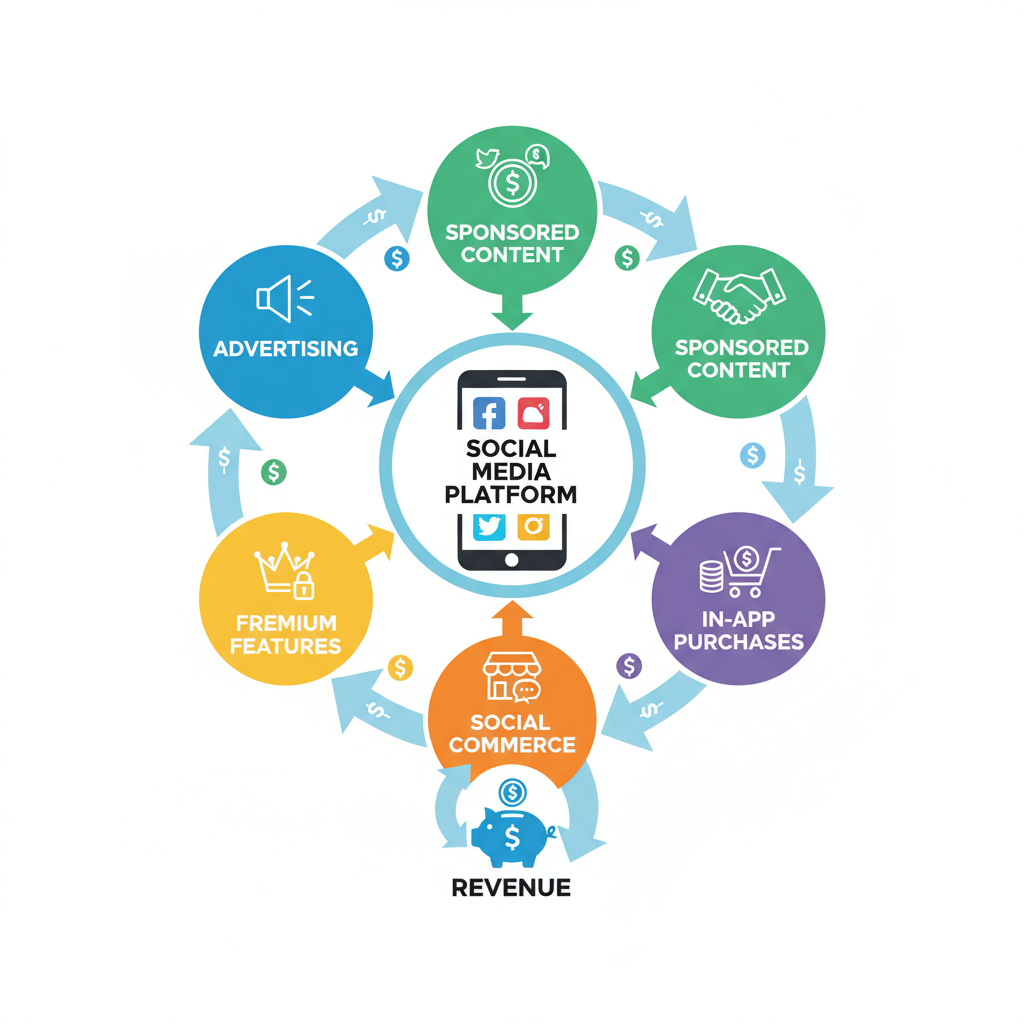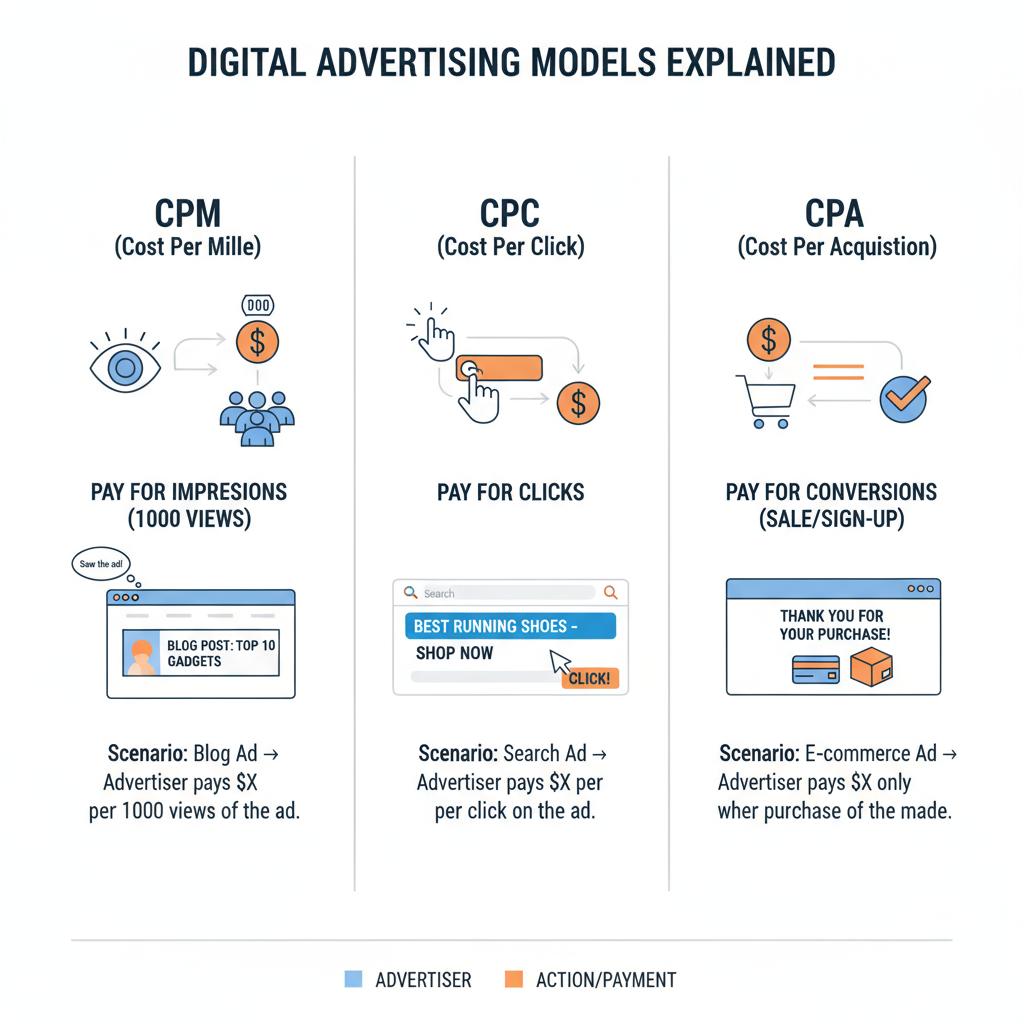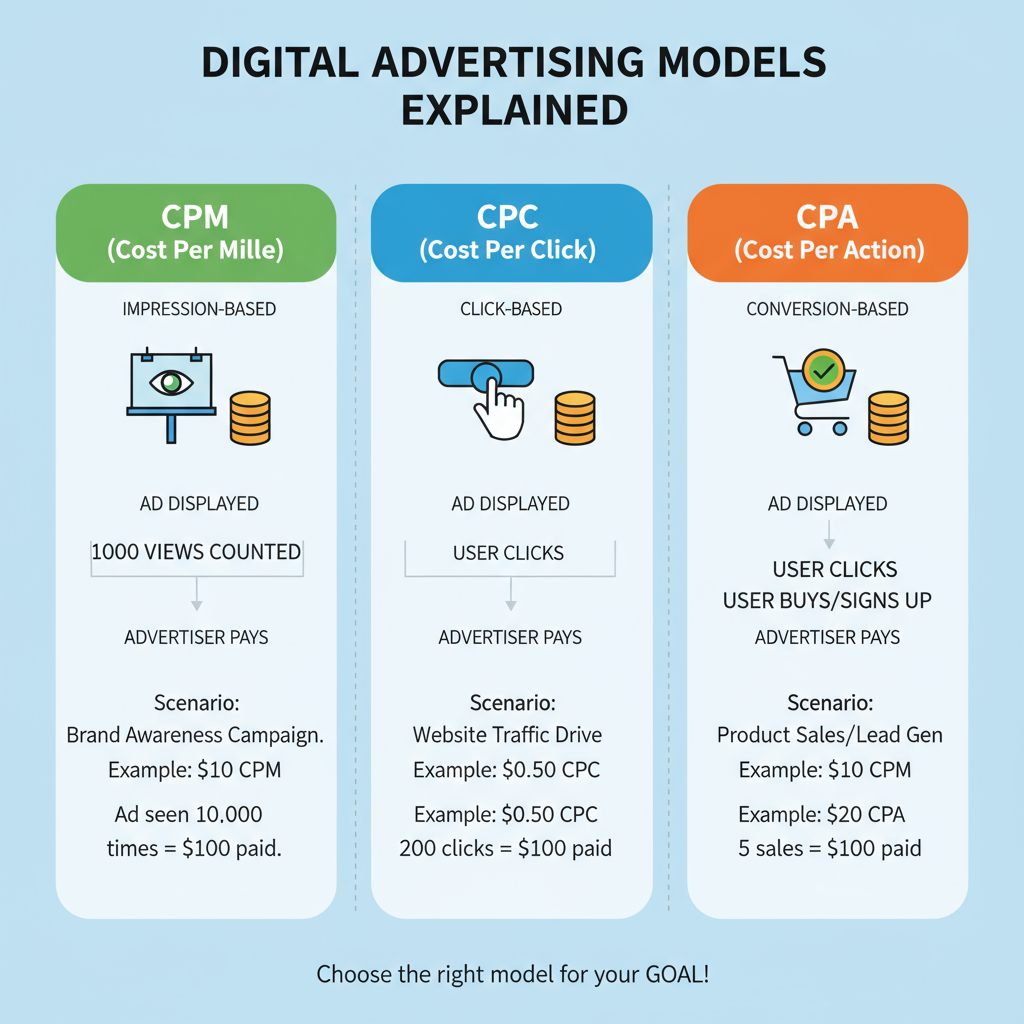How Does Social Media Make Money Through Ads and More
Discover how social media platforms generate revenue through ads, influencer marketing, social commerce, data monetization, and premium features.

Introduction to Social Media Business Models
Social media platforms have evolved into powerful digital ecosystems that dominate online interaction and commerce. Today, understanding how social media makes money is vital for businesses, marketers, and creators aiming to thrive in this space. Behind familiar feeds and stories lies a sophisticated network of monetization strategies — from ad-based models to direct consumer sales and emerging digital economies. These platforms leverage vast user bases, precise targeting, and constant engagement to transform attention into revenue.

In this guide, we’ll explore the primary revenue streams in social media, analyze case studies, address ethical considerations, and look ahead to future monetization trends. Whether you’re building a brand or studying the industry, these insights will help you navigate the economics powering the platforms.
---
Overview of Major Revenue Streams
Social media’s income is derived from several broad categories, which can be employed individually or in combination:
- Advertising (display ads, video ads, targeted promotions)
- Sponsored content and influencer partnerships
- Subscription or premium tiers
- In-app purchases and virtual goods
- Social commerce and marketplace transactions
- Data monetization and analytics services
- Licensing technology or API access
Each revenue source has its own dynamics and potential to generate sustainable income.
---
Advertising Revenue Explained
Advertising remains the backbone of most free-to-use social networks. Businesses pay these platforms to promote products or services to highly segmented audiences, often yielding better ROI than traditional channels.
Key Ad Models
- CPM (Cost per Mille) – Advertisers are charged for every thousand ad impressions.
- CPC (Cost per Click) – The advertiser pays when a user clicks on an ad.
- CPA (Cost per Action) – A fee is triggered when a defined user action occurs, such as a purchase or sign-up.

Targeted Advertising
Platforms collect user information — demographics, location, interests, and behaviors — to build precise audience segments. Enhanced targeting capabilities are a primary reason advertisers commit substantial budgets to social media campaigns.
---
Sponsored Content and Influencer Marketing Partnerships
Unlike traditional ads, sponsored posts integrate brand messages directly into content produced by influencers or creators. This approach often benefits from higher authenticity and trust.
- Micro-influencers deliver niche but highly engaged audience interactions.
- Long-term collaborations embed brands within a creator’s ongoing narrative, yielding more consistent returns.
Influencer marketing effectively overcomes ad fatigue by aligning promotional content with user interests.
---
Freemium Models and In-App Purchases
Many platforms invite users in for free, then upsell enhanced features via the freemium model. Common monetization mechanisms include:
- Removing or reducing ad exposure
- Unlocking advanced analytics and publishing tools
- Purchasing media filters, avatars, or other exclusive content
In entertainment and gaming-focused platforms, in-app purchases may also involve sticker packs, customization options, or access to premium live events.
---
Social Commerce: Marketplaces and Live Shopping
Social commerce blends e-commerce capabilities within the social media interface, closing the gap between discovery and purchase.
Popular Formats
- Marketplace Listings: Peer-to-peer buying and selling within the platform.
- Shoppable Posts: Integrated tags providing direct product links.
- Live Shopping: Interactive streams where hosts sell in real time.
By owning the entire shopping journey, platforms gain valuable transaction data and new monetization opportunities.
---
Data Monetization and Analytics Services
Beyond advertising, some platforms anonymize and aggregate activity data to sell insights:
- Trend analysis and industry reports
- Campaign performance dashboards for brands
- Audience behavior segmentation for market research
Such data monetization requires consideration of stricter privacy regulations to maintain compliance and user trust.
---
Premium Membership Tiers and Exclusive Content
Subscription-based models target users willing to pay for enhanced experiences, such as:
- Expanded storage capacity
- Advanced editing or publishing tools
- Exclusive content feeds
- Boosted algorithmic visibility
These targeted offers are often tailored to businesses, content professionals, or fan communities.
---
Emerging Revenue Models: NFTs, Virtual Goods, and the Metaverse
As digital interaction evolves, platforms are experimenting with blockchain-based and immersive monetization tactics:
- NFTs: Unique, verifiable digital assets.
- Virtual Goods: Purchasable items for avatars or virtual spaces.
- Metaverse Environments: Selling virtual real estate, experiences, or event tickets.
Though still emerging, these models are aligned with projected growth in decentralized and immersive internet experiences.
---
Case Studies: Facebook, TikTok, YouTube, Instagram
| Platform | Primary Revenue | Notable Features |
|---|---|---|
| Facebook (Meta) | Advertising (~97% of revenue) | Advanced audience targeting, integrated marketplace |
| TikTok | Advertising, in-app coins | Short-form videos, robust influencer ecosystem |
| YouTube | Advertising, Premium subscriptions, Super Chat | Extensive video library, creator revenue sharing |
| Advertising, in-app shopping | Shoppable content, visual storytelling focus |
These examples highlight both the dominance of advertising and the potential benefits of diversified income streams.
---
Ethical Considerations and Privacy Concerns
Monetization models relying on user data come with ethical responsibilities:
- Privacy: Ensuring users understand how their data is collected and used.
- Informed Consent: Simplifying terms of service to promote transparency.
- Algorithm Bias: Preventing automated systems from reinforcing stereotypes or harmful behavior.
Maintaining public trust is critical for the long-term viability of a platform.
---
How Creators Share Revenue with Platforms
Many networks support creators by sharing advertising or subscription revenue:
- YouTube Partner Program shares up to 55% of ad revenue with eligible participants.
- TikTok Creator Fund rewards based on viewer engagement.
- Twitch offers subscription revenue splits to streamers.
Revenue sharing ensures creators have incentives to produce engaging, high-quality content.
---
Future Trends in Social Media Monetization
Key developments likely to shape the industry include:
- Diversification: Growing reliance on subscription options to ease ad dependence.
- AI Integration: More personalized ad targeting and dynamic pricing strategies.
- Expansion into AR/VR: Merging the digital and physical through immersive commerce experiences.
- Community-Centric Funding: Membership-based groups that monetize without intrusive advertising.

Forward-looking platforms will adapt business models to emerging technologies and changing consumer expectations.
---
Conclusion and Key Takeaways
Social media has become a multifaceted business engine, driven by both traditional and emerging revenue streams. Advertising remains dominant, yet diversification through subscriptions, direct commerce, and virtual economies is accelerating.
Key points to remember:
- CPM, CPC, and CPA ad formats form the commercial foundation for most platforms.
- Premium tiers, in-app purchases, and social commerce present scalable alternatives.
- NFTs and metaverse integrations could redefine social media economics.
- User trust is paramount in balancing monetization with ethical practices.
Understanding how social media makes money equips marketers, brands, and creators to anticipate shifts and unlock opportunities. As these platforms evolve, expect more seamless integration of community, commerce, and content — where every interaction can contribute to sustained growth.
---
Want to explore more on monetization strategies and digital marketing insights? Stay connected for in-depth analyses and practical tips to grow your online presence.



